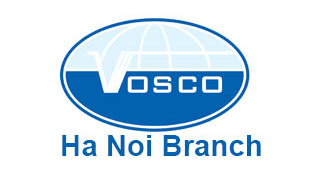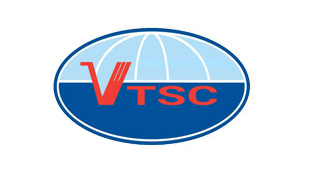 World economic recession impact shipping to Viet Nam
World economic recession impact shipping to Viet Nam
Tanker market remained stable and will probably end this year with average sales of good, quick recovery of the investment value. However, with oil prices falling to 50-60% compared to the record price of $ 147 / barrel, OPEC to cut oil production is also no surprise that the lease "Spot" for ships VLCC (Very Large Crude Carriers) reduced to half in the near future.
In the framework of this article, we would like to focus only outline an overall picture of the dry cargo market fluctuations through the evaluation and analysis of the international group of experts published in HSBC Weekly Bulletin.
BDI touch to the bottom in less than 6 years
October 28, the Baltic Dry Index (BDI) closed at 982 points, the first time fell below 1,000 points since May 13 08, 2002. BDI is now down nearly 92% compared to the "top" is 11.793 points on 20 05 2008. Capesize chartering group market saw the most volatile, with average rent on four main lines of $ 7.340 / day on October 28, down more than 97% from its peak of $ 233.988 / day at the beginning of month 06. Not foreseeable, drop speed up this precedent as a blow to the shipowner, charterer, the meta-analysis all those involved "playing field" has confidence in the calculations forecasting principles. China has always played a big circle in the impact and market-oriented. Boom as China imports large items ore, coal, this power, though not yet completely closed, with only little demand curve graph soaring market is broken point vertically. Speak market by rope ladder, down by the elevator is.
Goods stocks too much before Olympics
Go to outline a panoramic sequence of events related to the transport of dry goods in 2008, we can start with the period China increased imports of raw materials (particularly iron ore and coal) before the Beijing Olympics. This has created a false impression of the actual needs, and as expected, the demand for transportation interruption during the Olympics when the steel plants and factories temporarily closed and energy consumption also hampered by limited requirements of the environmental pollution. We can fully expected that China will return to work business as usual immediately after the end of the Olympic, Paralympic and Golden Week holiday. Instead, China has front steps slowly due to the tremendous influence of disease spread from the western financial impact on the demand for export and import goods. Goods can not reverse course, it will impact passenger demand to import raw materials and energy, the Chinese market is almost paralyzed.
China dramatically reduced growth
After growth of 12% in 2007, China's growth has slowed down to 9-10% in 2008 and forecast to 8% for 2009. Growth rate below this risk may arise not enough jobs and ensure social stability. The factory in Guangdong province, southern China, where production costs are lowest in the world, focused supply steel products export is gradually closed by the sales costs are crowding out small collected. This sudden change forced the People's Bank of China for the third time to cut lending rates to 27 bps in the last 6 weeks on October 29. The government is to consider strengthening the construction of infrastructure in the country in order to create support for the development of "internal forces" and create more jobs. Global market, and so on, are abandoned in the wobble with market rates decline and the index fell by a mercilessly, but they can be considered as optical breather after five years of boom.
And Samba lost the rhythm ...
Unfortunately, at a time when shaken, market sensitive at the beginning of the month 09, Vale - mine and the world's largest iron ore supply in Brazil, decided to increase sold FOB to approximately 12% ( though this year has increased to 65-71%) for iron ore supply contract for the steel factory in China and Asia. Even declared this adjustment only to balance with the price that the production facilities in Europe are paying, in fact they want to compete with underground mines in Australia, "colleagues" with them to reach agreement up 45-50% of the sale price with the Chinese side. Decided to fall right into a time not so bad at all in the context of changes taking place in the world and China market. Brazilian iron ore imports frozen immediately after this decision and the Chinese steel enterprises only gradually consumption has excess reserves and, more importantly, it opened the door for negotiations on prices POB lower dimension, the opposite that Vale had expected.
Baltic Capesize Index (BCI) fell 87% in just 2 months
This is the start of the attack plummeted. The largest Capesize vessels with a load carried on the longest route from Brazil across the ocean to China have largely stalled. The dry cargo market impact is immediate and intense than the largest ship has turned and ran away from the loading port in Brazil caused the sudden excess demand for transport. More than two months after Vale proposed price adjustments, the BCI index has fallen 87% - a devastating decline has a negative impact on all different sizes of dry cargo vessels. That of course is an extreme decline, but one can predict when this situation turning back? Rent-term trip Spot group Capesize vessels near the back to near zero, while the owners still have to pay the fixed cost and waiting time. Vale had to turn the boat rentals for 2-4 months into floating storage at sea can not be sold to free up storage for the extraction on the shore.
But do Vale totally responsible?
No Vale is not entirely responsible. They are simply victims of time calculations decision. Not only the demand for iron ore between Brazil and China, is the basic source of the world shipping market also fell sharply. Various items such as bulk cargo, coal, wood, consumer goods, oil and many other things are stuck in financial payment method from the contract of sale. Both the trading system, the distribution has been hit hard by mutual distrust spread throughout the world's financial markets and inter-bank borrowing. Dry freight containers and oil tankers have been affected by this situation, and potentially other sectors from transportation of gas to transport cars will also be similarly affected. However, from this infection, there is little evidence that there will be serious disruption to business when crude oil tankers are often only circulated in a closed line from a few major countries providing the production and international oil refinery buyers.
When the market turned back on?
According to conventional thinking time of the dry cargo market recovery will not happen before the global financial situation stabilized. This prediction can not happen even in 2008. Shipping time is in the scene are faced with numerous difficulties and the owners have lobbied for and affirm their existence.
See a complete picture of the causes leading to the collapse of the commercial shipping market, now is the time we can focus on evaluating the terrible impact of the crisis on the financial markets and market capital markets for the global trading system. The credit crunch and problems in the insurance process and accept payment letter of credit (LC) of course has contributed to reducing the volume of goods transport by sea. Isolation is a systemic cause for the immediate consumers reduce inventory for production, supply and just get to the point in the future.
No rows Spot market, but there are a lot of ships Open Spot
Situation virtually absent sources is pushing many vessels on waiting. Part of the scarcity of freight can be explained by the severe decline of demand for goods in the contract. Buyers do not want to "call" the ship made the last COA has signed contracts for about a year when they saw heavy decline for prices and freight. At this price is much cheaper, probably half or even less, if only to arrange purchase and delivery easy for each consignment. This makes the total flow of goods in this time both COA and contract types flights are much smaller than the need for freight in fact, even be adjusted to reduce demand consumption. Before use all the inventory, that will soon appear additional needs, and that time must be sufficient to shipment by sea from the mine to the factory. When the freight market will bounce back.
Finance freeze
The origins of the dry cargo market weakness in the current is due to the severe collapse of global financial markets. The trade was built on the basis of mutual trust: you have to pay then was, and you had to send then receive the money. There will be a few issues such as delivery time specified, the status of goods, full payment or the like. The time that the goods on the sea journey is the time that the seller has not received payment, the payment is carried out when the delivery has been done. For shipments valued at many times higher status such payment would cause a pressure on cash flow is not fair to the seller. The bank trade finance to solve this problem through the release of the LC (and they charge, but this charge is now three times higher compared to a year ago). A LC so will ensure payment for the goods as soon as it is safely loaded onto the ship, but before the goods reach the buyer, so to solve cash flow problems and issues partner to the seller.
Another method of payment is LC deduction when the small exporters do not have much capital may ask banks to prepay an amount. Prepayment will be deducted from the value of shipments and bank risk-taking when the buyer payment through the use of commodities as material guarantee. The perspective of the seller is also reasonable discounts because they can be paid before delivery months as well as the transfer of the risks in the payment with the bank partners. WTO estimated value of world trade fell between $ 14 trillion, with 90% being paid by the various credit. The problem now is the importer and the exporter no longer trust each other, or of other banks, and the goods are lying at the port waiting to be loaded onto the vessel. The rift is a basis, it reflects the mutual mistrust in the interbank lending market, now is a serious erosion of business contacts all over the world, as well as of course, is running sea.
Trading in financial markets are less tape to the beginning of the recovery of the shipping
To start a recovery, and avoid deadlock completely when the steel mills, aluminum smelting furnace and the supply depleted energy inputs and closed, credit market issues need to be addressed. We can not map out a schedule for solving this problem because it is a matter of inter-bank relationships, mutual trust, and if it continues to be improved, banks Central Government or the State Treasury will need to step in with the status of guarantee payment for goods. Have heard that there are many U.S. and European banks are imposing restrictions on the acceptance LC was released at the request of a few importers for the energy market due to risk aversion of banks partners and countries that cause. In view of the dry freight, the main importer of goods ranging from Latin America and Europe to Africa and Asia, it is hard to imagine this stalemate is allowed to continue to include hours.
Release LC affected by the collapse of confidence in the interbank market
May also notice that some of the export markets do not want to accept the LC energy released by a number of U.S. banks, many of which have lost credibility, so the affect trade in both directions. Some importers noticed that their bank does not want to open LC for large commodity trading where further risk reduction in commodity prices persist. This is also the reason for the importer may not sell goods when faced with the severity of the discount rate of the goods. This increases the "possibility of insolvency." Banks look to enforce lien for their goods if the importer refuses to pay, and when the price of goods is not lower risk can be defined as "losses when defaults "larger. The current market conditions are considered more risky than usual by the bank to open LC both provisions PD (Probability of Default) and LGD (Loss Given Default), ask for a preset amount of cash more from the importer before releasing the LC.
WTO will release?
The World Trade Organization, although the prestige of being overshadowed by the Doha round still bogged down, convened a meeting on November 12 between the leading trade finance banks and corporations trade officials of the government. Immediately ahead of the meeting, the WTO gave financial exchange plans increased from $ 1 billion to $ 1.5 billion. The worrying thing is that if this does not break the freezing we will be at risk of increased environmental protection as has been witnessed in the 1930 period of time. At that time, the Smoot-Hawley Act was a unilateral U.S. export tax increase to push world trade in a deadlock state and contributed to the recession become a state of stagnation. A secondary evidence from the California company East West Bancorp, the largest loan provider for the Chinese community in the United States, proposed a reduction of 10% of the previous LC rate has increased 15% each year over the next more than ten years. May see credit will be more bad and the global economic slowdown.
The LC issues become a reason to declare bankruptcy or to renegotiate ...
Due to the global trading system is frozen in mutual suspicion and that is a barrier to the implementation of the import and export decisions adopted. The current situation creates an excuse to help some importers based on the difficulty of the release of LC as a way to lower the purchase price of the goods CFR (cost and freight) agreed before it. We can imagine a few last-importer that has agreed a high CFR price advantage of chaos of the market today to completely reduce the volume of imports which have been committed prior to , or simply adjust the tolerances of that volume to their liking. All that is creating major destruction on the market of goods transport by sea erosion and are added to the value of the ship itself.
Ramifications on the market FFA (Forward Freight Agreement)
Collapse scenario of the index of dry cargo market will have serious consequences for the parties that believe in the recovery in the fourth quarter, as well as the majority of our hope, and our best expectations. Instead of turning in October, the market continued to decline further. Within from October 1 to October 30 BDI 71% and BCI decrease 69%, the collapse can not imagine will appear heavy losses for some people when the bar cash settlement of the contract in October due on November 7. In a few days I read a notice of an owner / operator of the vessel of the United States who believe in this recovery by identifying a number of ships as well as the purchase price on FFA and closing before charges fuel. All these things are missed very much today and the slide has wiped out corporate assets. When the actual value is over-inflated and all were dashed by the bet on gambling market.
All that mean?
The fall in the freight market and freight charter has made acquisitions and building near freezing. Only a small number of sales contracts that "willing buyer, willing seller" was signed to provide reasonable standards for the valuation. Many ship broker to temporarily stop making the assessment by the market at this time, the seller is frightened of being sold low price buy no hurry to buy high price. The role of pricing policy and market assessment in financial markets has contributed greatly to the continuous decline in the value of assets by now a need for a high-value security to prevent risks when conducting acquisitions of raw materials for production inputs. Goods are for the moment as a human being at risk no shelter, no safe refuge. Because the accident happened for a lot of banks in the global credit market, banks provide funds to purchase the ship must closely evaluate the value of the vessel declared to bring the pledge comes from the Its income is severely reduced.
Is this the right time to start the market?
When the financial market issues to be addressed and trade flows recover, the ships will be busy again and the final consumer warehouse will be filled. It will take a few months to further determine the extent of the world and of individual cases is the demand from China. A number of important reserves will decline, but we can see the overall market growth rather than decline. Commodity prices will move up and the freight will be restored and look at the reality of it. We have measured the freight market decline is not inevitable and hope it hits the bottom is higher than the historical average. This expectation is realistic, but it will need some time to recover strongly as we have seen has been pulled from the market terrible rates of the 1980s. Can confirm the bet on the next silver in recent years almost as far back as the shipping and return merely service providers.
Do Thanh Ngoc - Exploit...






















